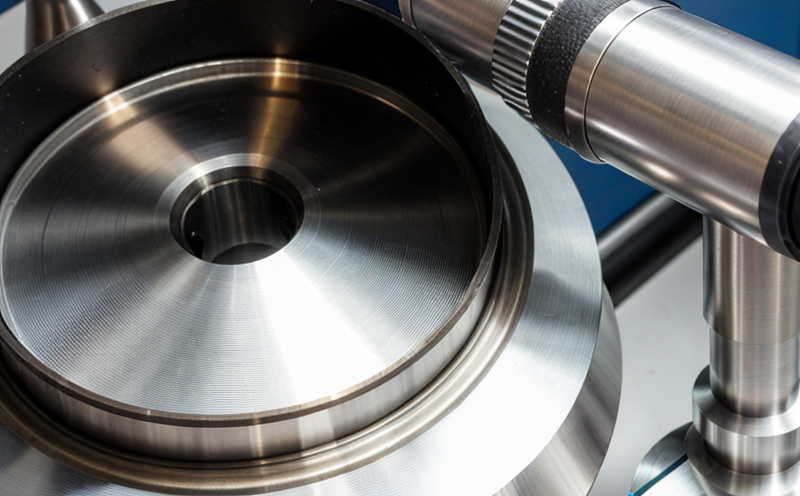ISO 945-4 Microstructure of Cast Iron – Nodule Count Testing
The ISO 945 series is a set of standards that provides guidance on the microstructural examination and nodule count testing for cast iron. This service focuses on the specific aspect of the standard, which pertains to quantifying the nodule structure in ductile cast irons (also known as nodular cast irons). These materials are widely used due to their excellent mechanical properties, allowing them to be employed in various sectors such as automotive manufacturing and construction.
The process involves meticulously preparing the sample by cutting it into a suitable size and then etching it with an appropriate reagent. Once prepared, the specimen is examined under a microscope using polarized light microscopy techniques. This method allows for the accurate identification of nodule structures within the matrix of the cast iron.
Accurate measurement of nodules is crucial as it directly impacts the material's performance characteristics and quality. The procedure requires highly skilled personnel who understand not only the technical aspects but also the nuances associated with this type of examination. Compliance with ISO 945-4 ensures that results are consistent, repeatable, and comparable across different laboratories.
Our service includes detailed reporting tailored to meet your specific requirements, ensuring complete transparency regarding the testing process and findings. This comprehensive approach helps clients make informed decisions based on reliable data.
The following table summarizes key aspects of ISO 945-4:
| Aspect | Description |
|---|---|
| Sample Preparation | Cutting to appropriate dimensions, etching with specified reagents. |
| Microscopy Method | Polarized light microscopy technique for optimal visualization of nodules. |
| Data Collection | Manual or automated counting of nodules per unit area. |
| Reporting | Detailed report including images, measured values, and interpretation. |
The next table provides a summary of the reference materials used:
| Reference Material | Description |
|---|---|
| DIN 5031-2 | Standard for etching reagents. |
| ISO 945-4 | Main standard governing nodule count testing. |
| ASTM E761 | American Society for Testing and Materials standard for similar applications. |
To ensure accuracy, our team adheres strictly to these standards. This includes using calibrated microscopes equipped with advanced imaging technology. Our highly trained experts employ consistent techniques throughout the entire process—from preparation of samples through final analysis and reporting. By doing so, we maintain high levels of precision and reliability in all our services.
In summary, this service offers a robust solution for those needing precise nodule count testing according to ISO 945-4 standards. It is particularly beneficial for industries relying heavily on ductile cast irons where consistent quality control is essential.
Applied Standards
The applied standards used in our ISO 945-4 Microstructure of Cast Iron – Nodule Count Testing service include:
- DIN 5031-2: Standard for etching reagents.
- ISO 945-4: Main standard governing nodule count testing.
- ASTM E761: American Society for Testing and Materials standard for similar applications.
These standards provide the framework within which we operate, ensuring that our results are consistent with international benchmarks. Compliance with these standards also enhances credibility when sharing findings internally or externally.
Eurolab Advantages
At Eurolab, we pride ourselves on offering superior quality services backed by extensive experience and cutting-edge technology. Our advantages in providing ISO 945-4 Microstructure of Cast Iron – Nodule Count Testing are numerous:
- Expertise: Our team consists of highly qualified professionals with years of industry experience.
- Technology: Utilizing advanced equipment such as state-of-the-art microscopes.
- Consistency: Strict adherence to international standards ensures consistent and reliable results.
- Precision: Minimizing variability through standardized processes.
- Compliance: Ensuring all work meets required regulatory standards.
- Efficiency: Streamlined workflows reduce turnaround times without compromising quality.
These factors combined result in a service that is not only accurate but also efficient, making it easier for our clients to integrate these results into their operations seamlessly.
International Acceptance and Recognition
The International Acceptance of ISO 945-4 Microstructure of Cast Iron – Nodule Count Testing is substantial. This standard has been widely adopted across various industries, including automotive manufacturing, construction, and heavy machinery production.
- Automotive Industry: Compliance with this standard ensures that cast iron parts meet stringent safety and performance requirements.
- Construction Sector: High-quality components produced according to ISO 945-4 contribute significantly to the durability of structures.
- Mining & Heavy Equipment: The robust nature of materials tested under this standard makes them ideal for use in challenging environments.
The global recognition of these standards underscores their importance and reliability. By adhering to ISO 945-4, organizations can demonstrate their commitment to quality assurance while maintaining competitive edge.





